The Digital Workshop on food security challenges, organized by GAIA EPICHEIREIN, was highly successful

ith the presence of academics, as well as important institutional and business representatives of the agriculture and agri-food sector from Greece and the EU, the informative event of the GAIA EPICHEIREIN on “Food security challenges for sustainable food systems: CAP 2023-2027 tools, national approaches and best practices“.
The agricultural sector needs to be adapted to climate change and other important geopolitical challenges, in order to achieve a balance between the economic, environmental and social sustainability of food systems, and to strengthen the resilience and competitiveness of the primary and wider agri-food sector. In that context, presentations and debates were carried out during the Digital Workshop, which was attended by more than 300 viewers. The event was livestreamed through the event’s platform, through GAIA EPICHEIREIN’s channel on YouTube and through the thematic portals ypaithros.gr and agro24.gr.
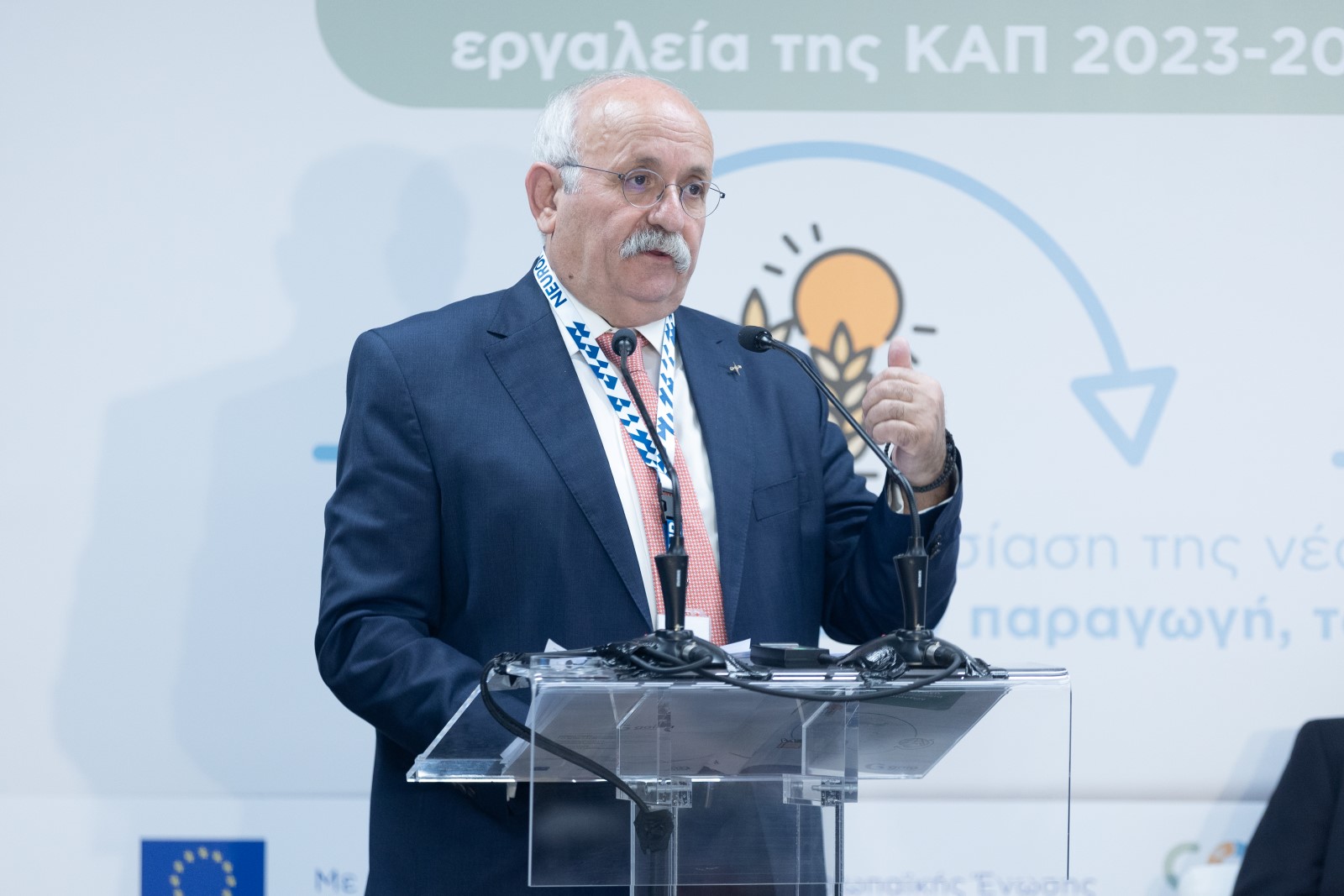
“Sustainability is not a one-size-fits-all concept, but encompasses the economic and social dimension”, pointed out the President of GAIA EPICHEIREIN Mr. Christodoulos Antoniadis in his opening address, noting that “At GAIA EPICHEIREIN we make a systematic effort to contribute to an informed public debate on the present and the future of Greek agriculture”.
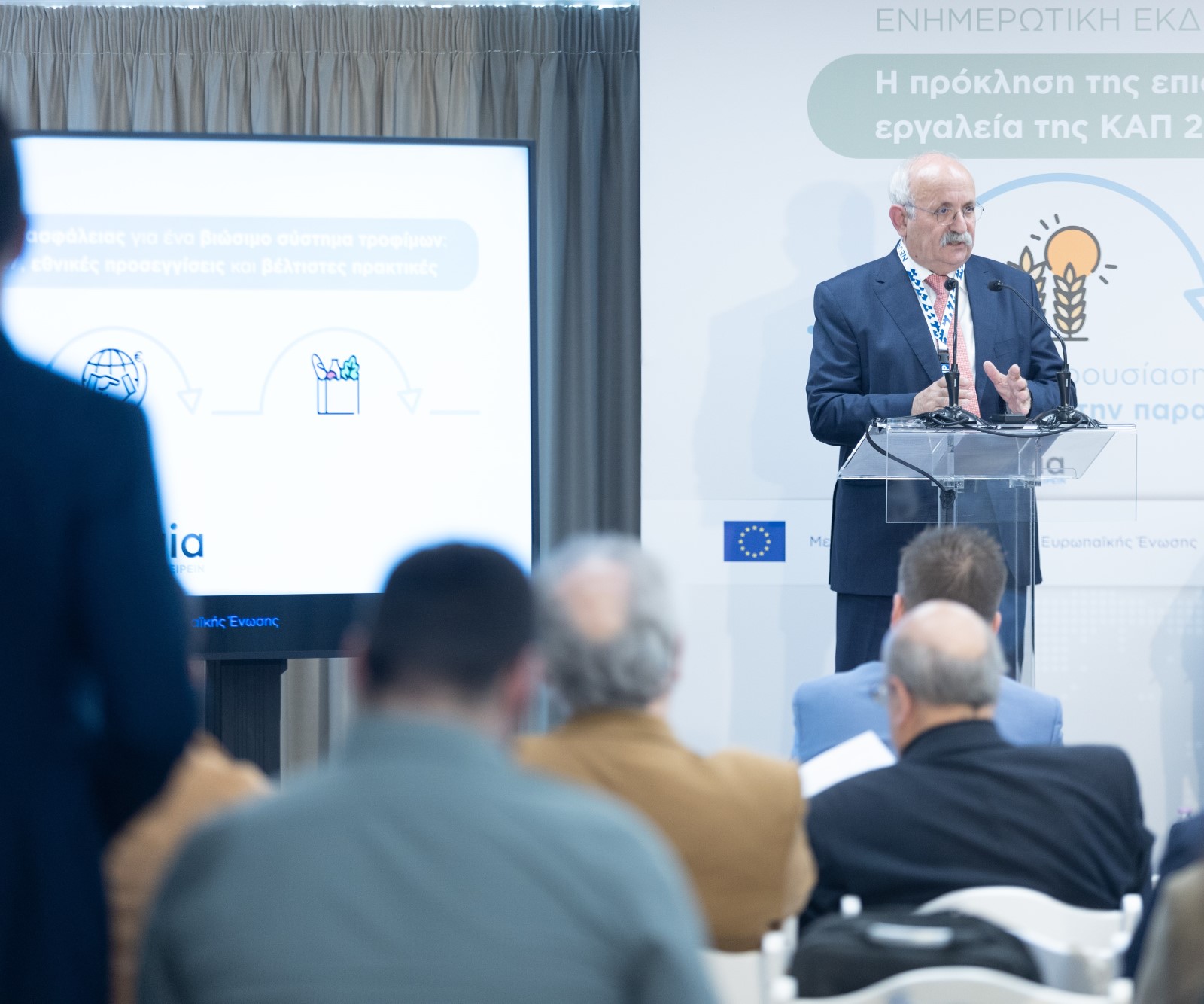
“Are we in a position to contribute to a sustainable agricultural sector in our country?” asked Mr. Alexandros Kontos, Director General of SEKE, President of Syneteristiki Insurance and former Minister of Rural Development and Food, during his welcome speech. Mr. Kontos also referred to the importance of food sovereignty, while he noted that unless the Ministry’s role is not upgraded and a national policy is not drawn up, the future will be uncertain.
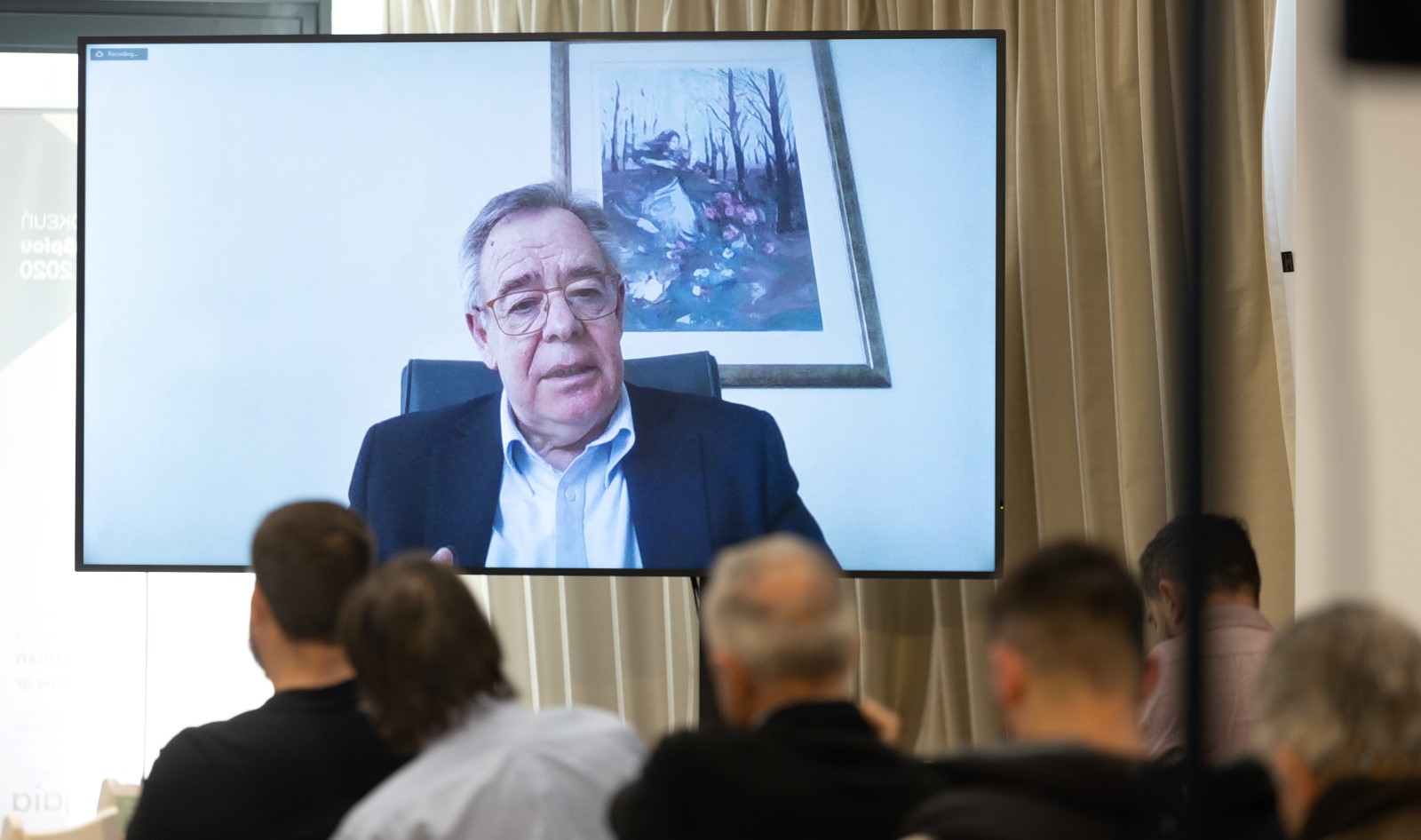
A similar position was expressed by the SYRIZA Member of Parliament for Larisa and former Deputy Minister of Rural Development and Food, Mr. Vassilis Kokkalis. “Unfortunately, in Greece, at the moment, highly productive land is not protected,” he argued while stressing that there should be a serious plan for soil and water management in order to avoid the desertification of the countryside.
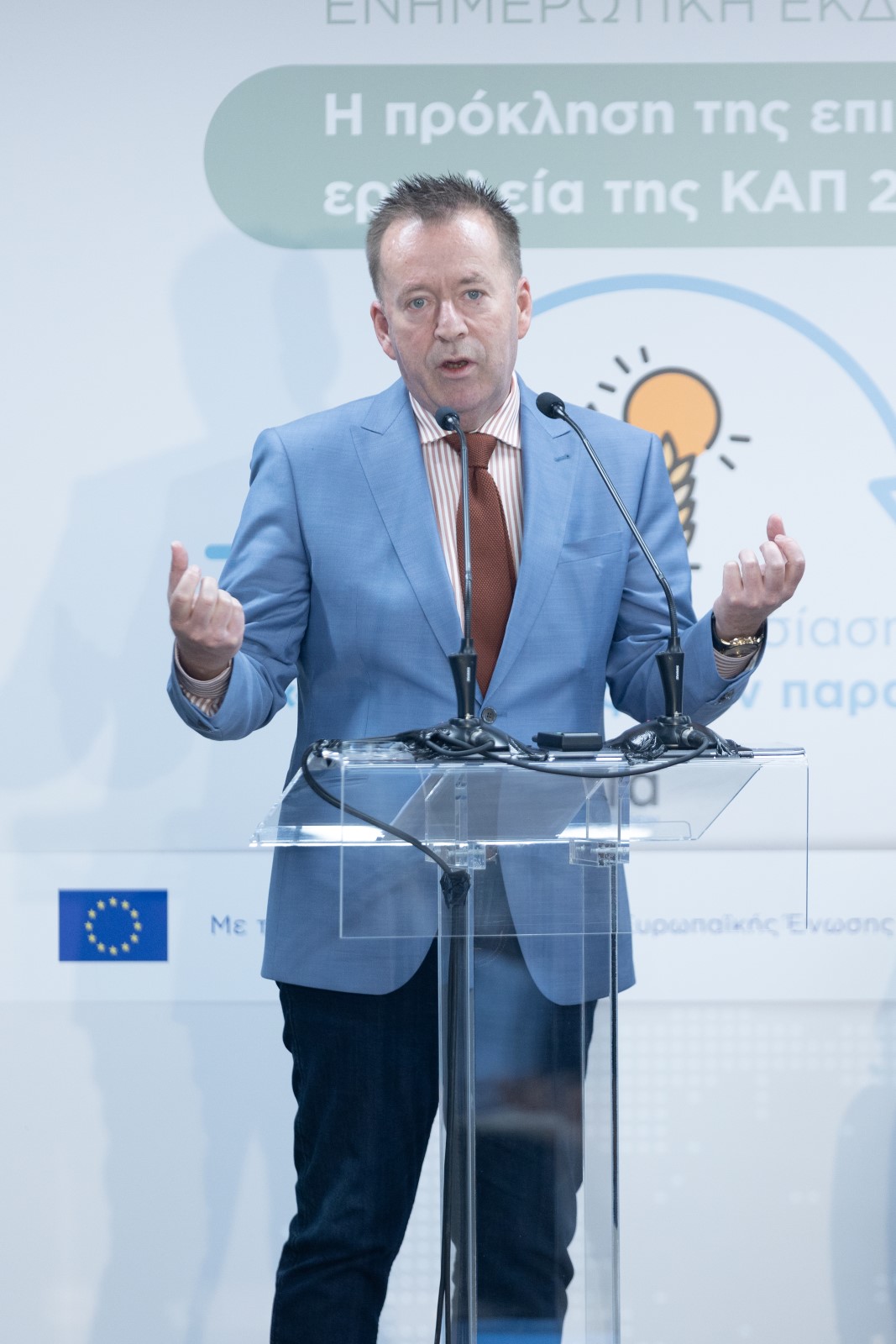
Mr. Athanasios Petropoulos, former President, GEOTEE Dpt. | Sector of Rural Development and Food, PASOK–KINAL, spoke of a crisis in the agricultural sector that creates a “suffocating situation”. At the same time, he noted that a national strategic awareness of developments in the EU and interventions through the CAP are needed to increase productivity and reduce production costs.
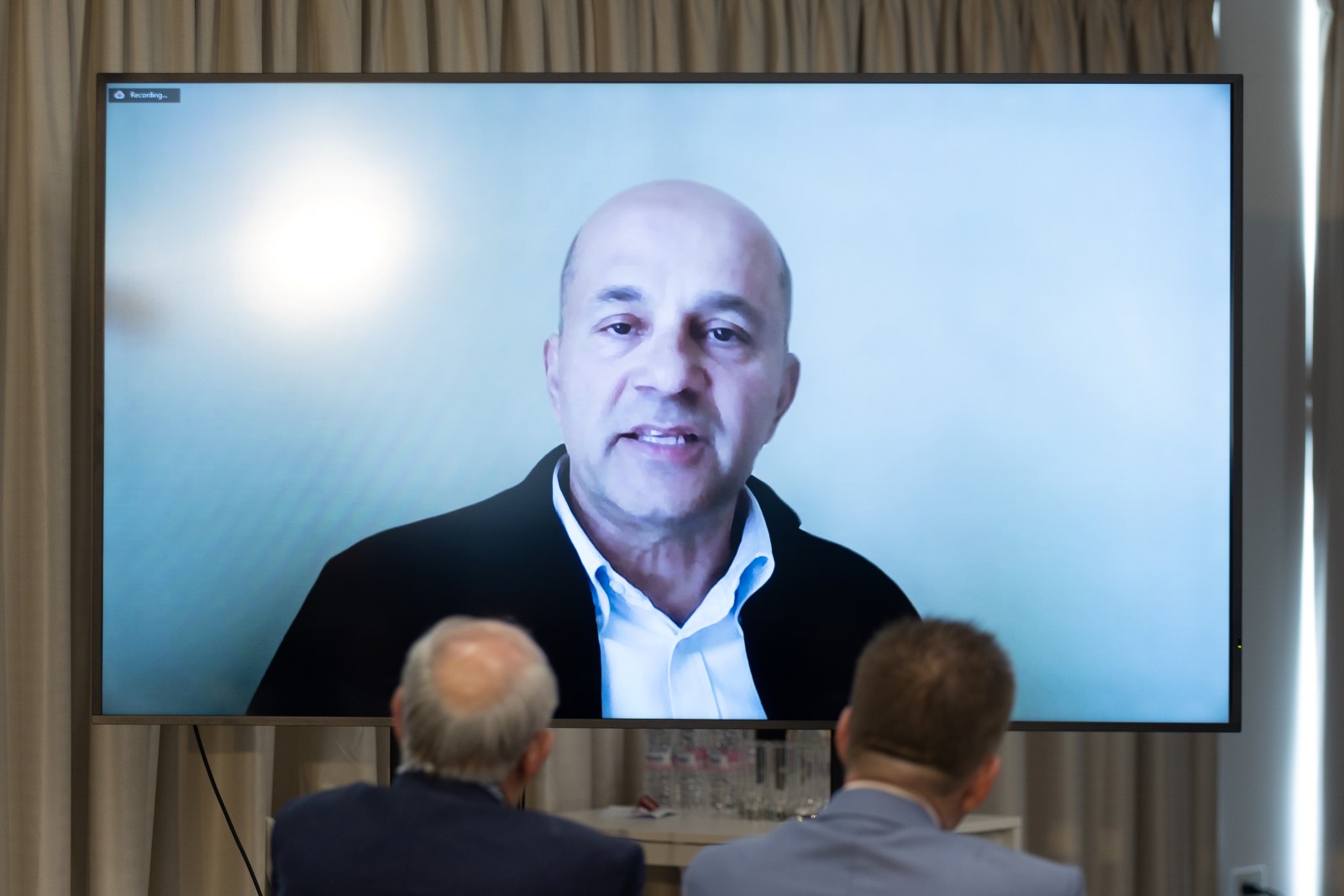
Ms. Elli Tsiforou, CEO of GAIA EPICHEIREIN, presented the entity’s new study entitled “Challenges in the production, trade and sovereignty of Greek Agriculture“, which, as she said, started from the need to explore the degree of vulnerability of Greek agricultural production in a European and global environment, which she described as a “perfect storm”.
In the study, data on the volume of production, foreign trade and consumption of 70 agricultural products of Greece were analyzed, while the degree of sovereignty of each product was determined, in order to evaluate recent challenges, to assess their effects on the coverage of needs and to identify the products characterized as vulnerable
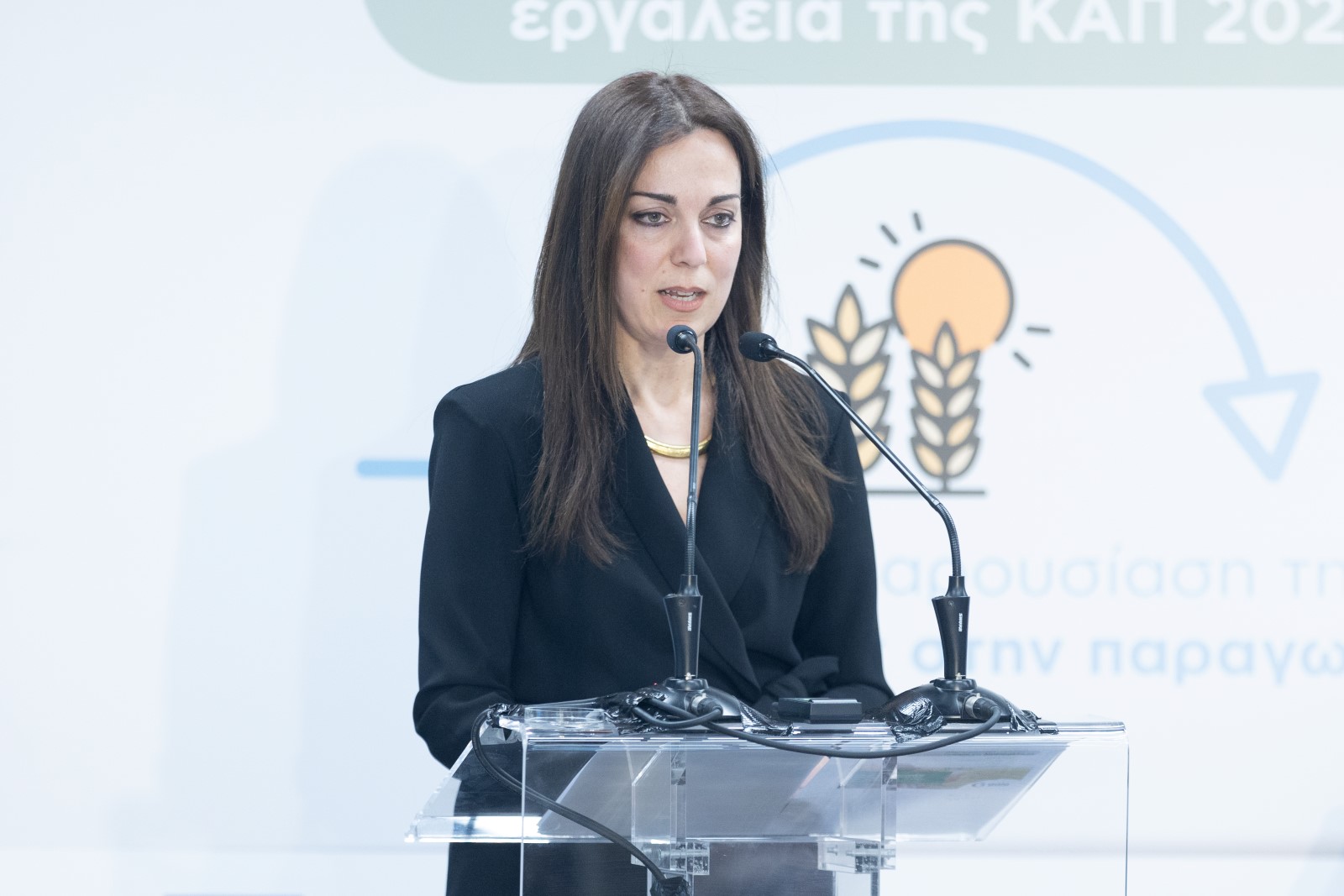
According to Ms. Tsiforou, the study showed that our country faces a deficit in very important products such as soft wheat, maize and soybeans, but also in animal products such as beef and pork meat. At the same time, agricultural income in Greece in 2021 showed a decrease, in contrast to the EU where it increased, while the trade balance of agricultural products during the first nine months of 2022 was negative by -560.8 million euros.
Finally, the organization of production, the investment in knowledge and innovation, the risk management policy and the formulation of a national agricultural policy were mentioned as proposals to strengthen the country’s resilience in relation to food sovereignty.
Mr. Petros Angelopoulos, Policy Analyst in the Unit for Policy perspectives of DG-AGRI, EC, took the floor and presented the EU’s initiatives and measures to deal with the multiple recent crises. He provided information on the financing and support of agricultural sector through the CAP, and addressed the problem of climate change, where he noted that “if we do not face the climate crisis, we will not be able to face the reduction in food production”.
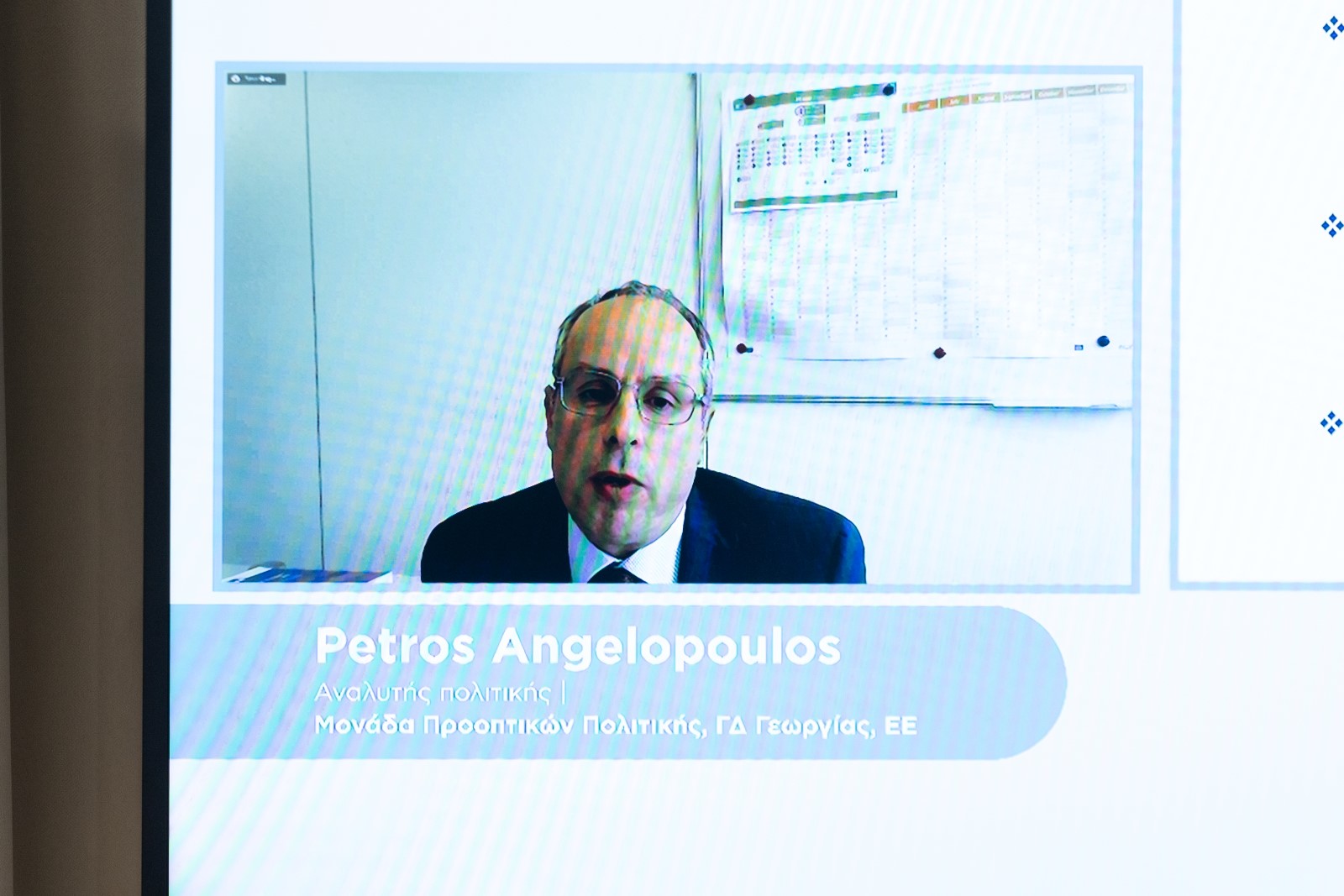
Mr. Spyridon Kintzios, Rector of the Agricultural University of Athens, presented for the first time the “Social contract of the AUA”, a network of initiatives and actions aimed at shielding the country from the threat of a food crisis. As he pointed out, a major issue is the access of citizens and especially vulnerable groups to food at an affordable cost. “We must set as a priority the establishment of food sovereignty,” he concluded.
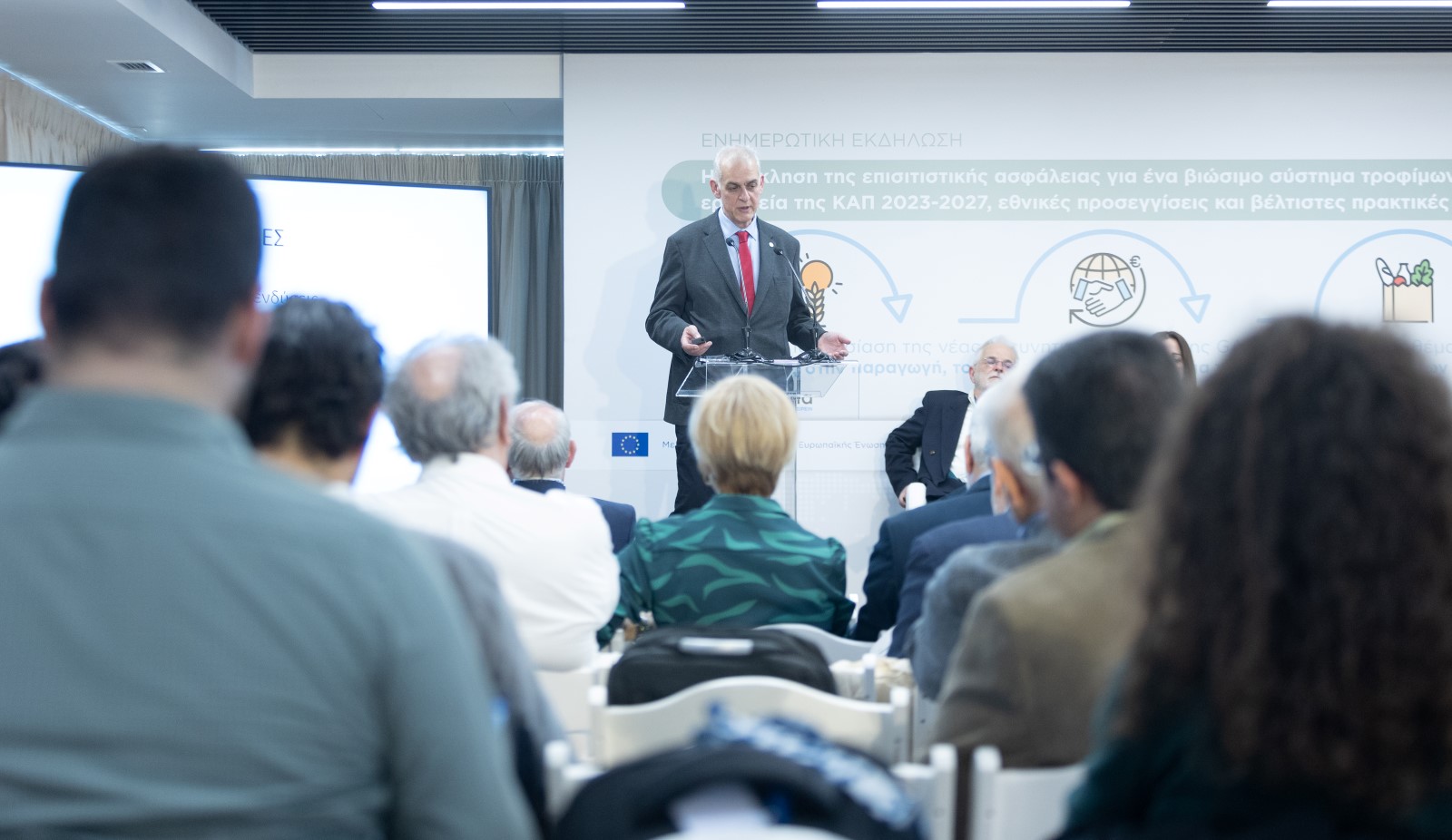
NEUROPUBLIC’s Senior Manager, Large Scale Project, Mr. Dimitris Kapnias, gave an in-depth picture of the contribution of smart farming to increasing the productivity and competitiveness of agricultural holdings, explained how technology can contribute to the added value of products, while citing examples of the catalytic role of technology in making key crop decisions thanks to the smart farming system gaiasense. Finally, he pointed out that it is important to have tailored solutions regarding smart farming, which will be adapted to the reality and the specific characteristics of the Greek primary sector.
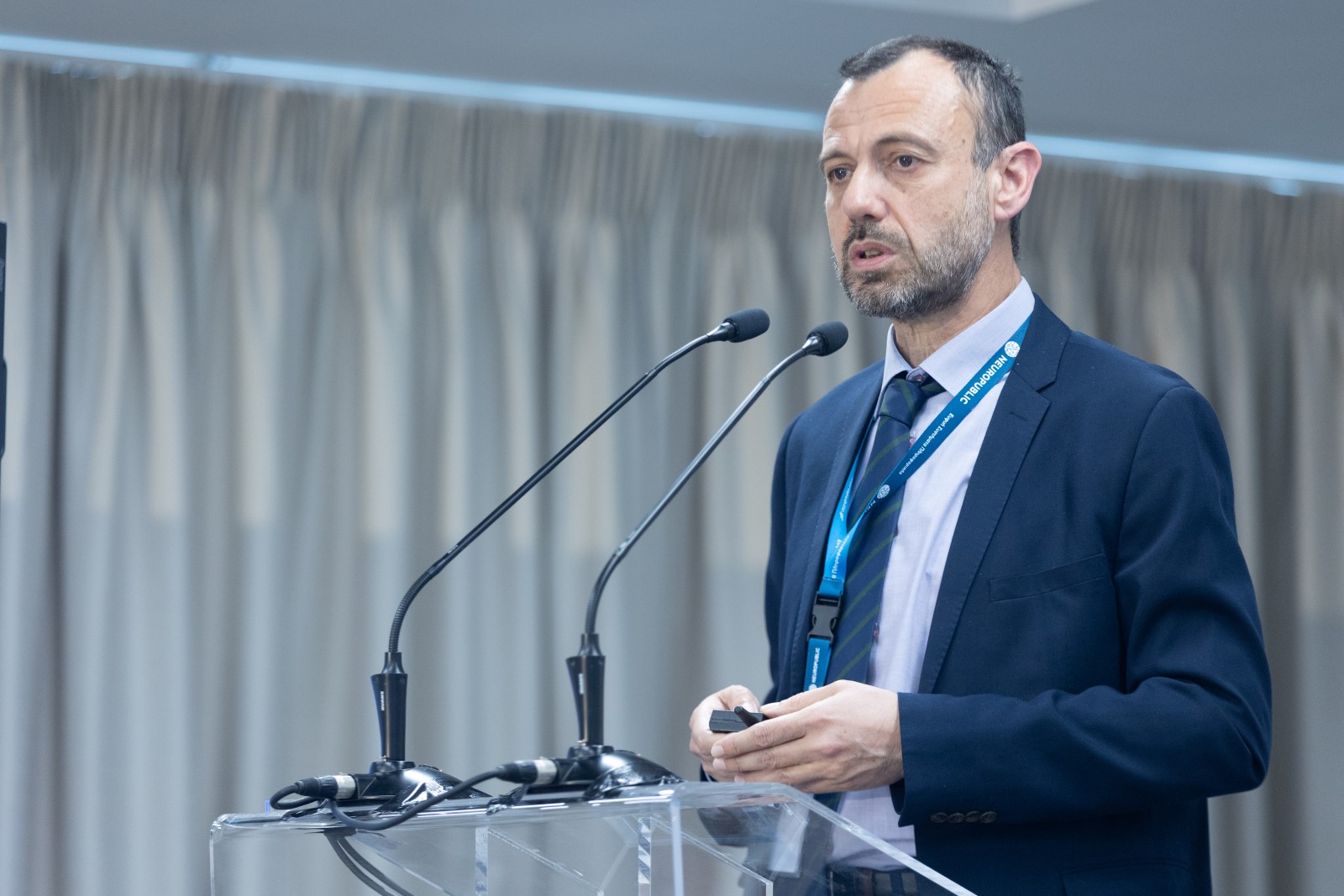
Mr. Patrick Pagani, Copa-Cogeca’s Senior Policy Advisor, spoke about the unforeseen developments and challenges experienced by the EU’s primary sector. In fact, he explained that both the “Green Deal” and the “Farm to Fork” Strategy had not foreseen possible effects in relation to the reduction of agricultural production. Mr. Pagani also emphasized that answers should be given concerning the ways in which producers’ dependence on fertilizers can be reduced, but also on how to achieve the green and digital transition “without leaving anyone behind”.
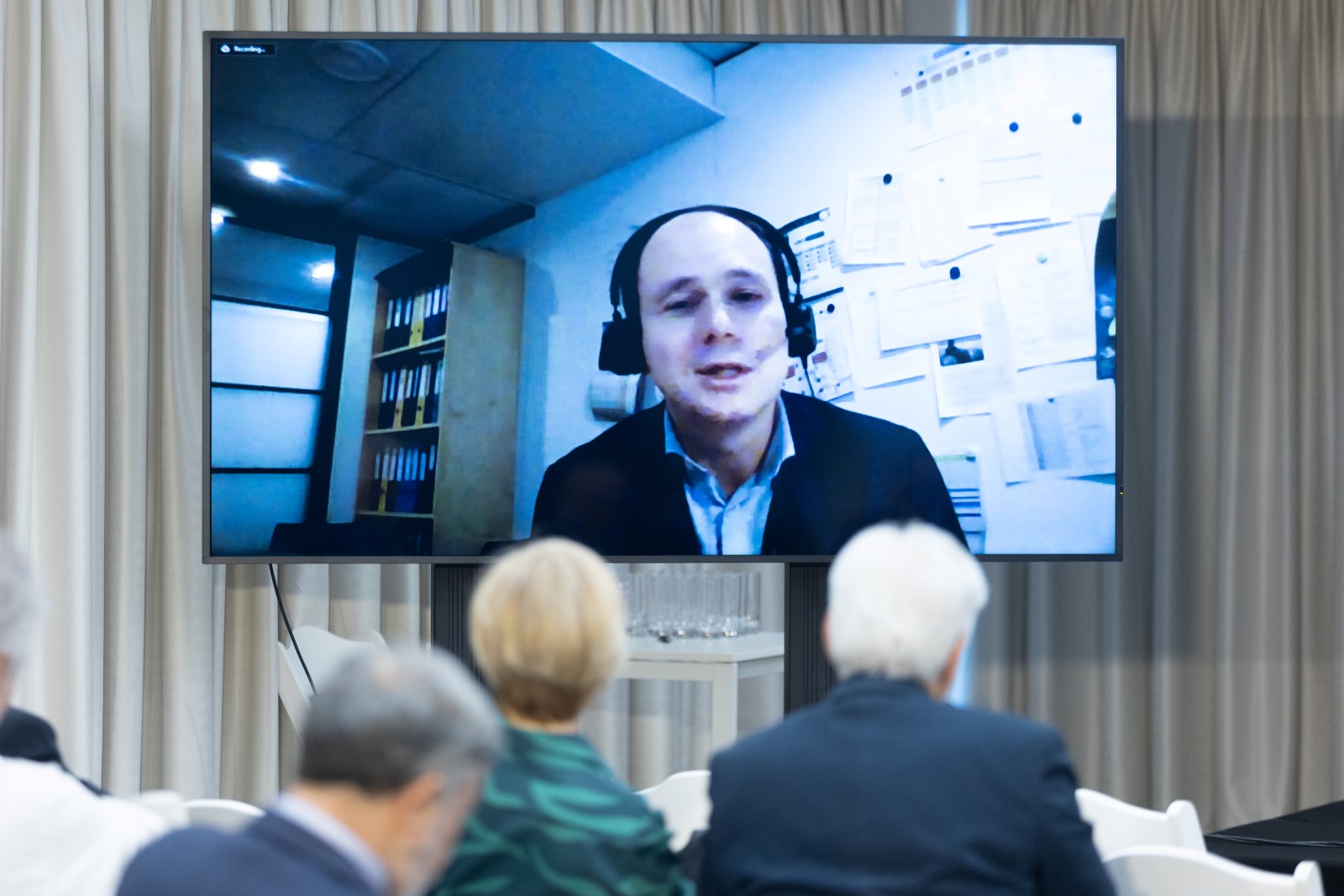
Last but not least, the President of the Association of Agricultural Cooperative Organizations of Greece (SASOE), Mr. Giorgos Katsoulis, outlined the challenges that the primary sector is facing and pointed out the key role of agricultural cooperatives and technology and innovation in reducing production costs, while stressing that “the State will finally have to decide if it wants to have primary sector”.
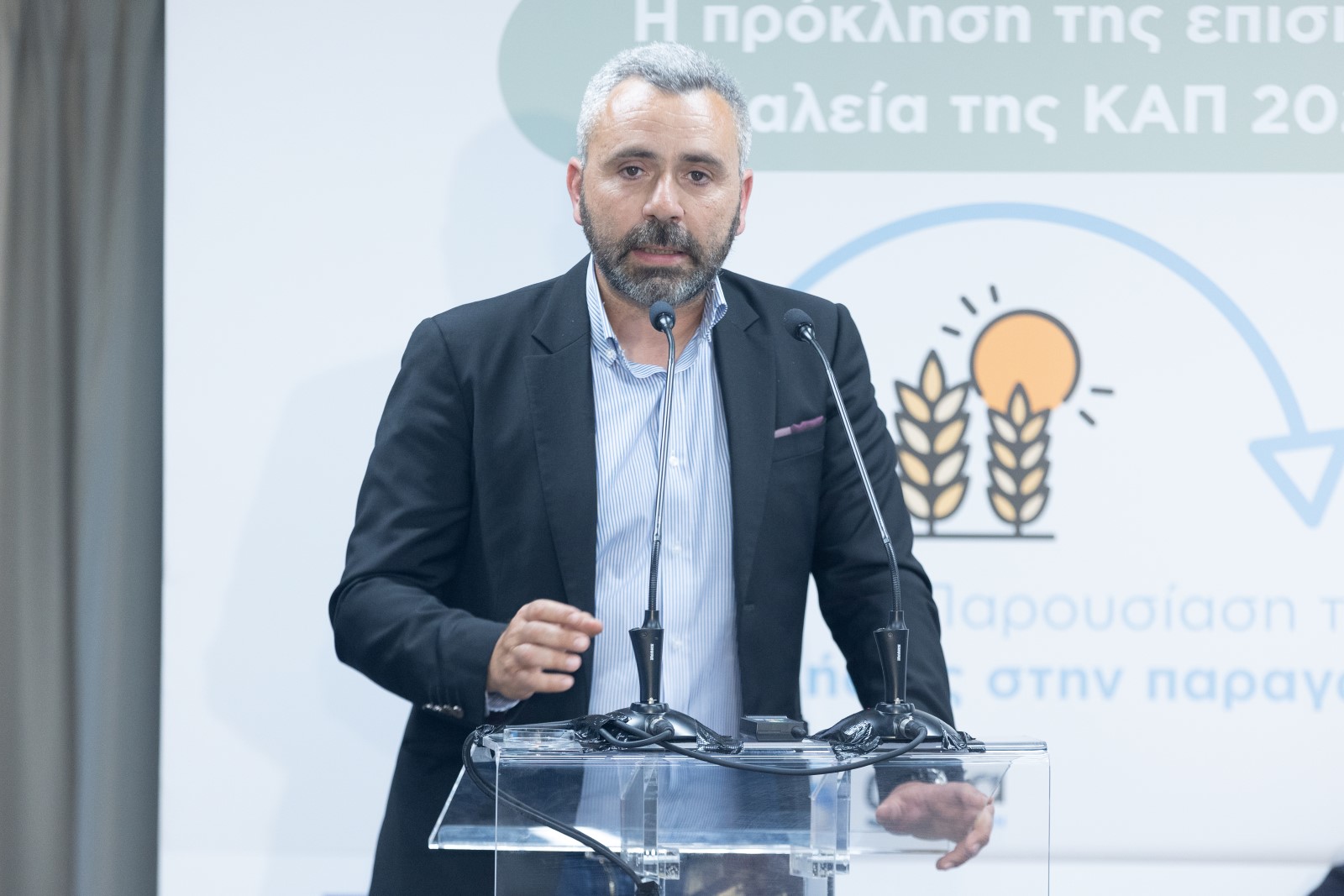
Presentations were followed by an exchange of views with participants, during which additional statements were made, among other, by the President of the Livestock Breeder’s Association, Mr. Takis Peveretos, as well as the President of the Agricultural Cooperative of Farsala, Ms. Matoula Aifanti.
The Digital Workshop was organized in the context of the Information Measure CAP4Clima, implemented by GAIA EPICHEIREIN during 2022-2023 and supported by Directorate-General for Agriculture and Rural Development of the European Commission.
The video recording of the event has been uploaded on the YouTube channel of GAIA EPICHEIREIN.
The study “Challenges in the production, trade and sovereignty of Greek Agriculture“, is available here (in Greek) and here (in English).
In addition, you can find the presentations of the speakers, here





